The University of Cincinnati’s Office of Research has named its second annual class of Trans-disciplinary Research Leadership Program (TDRLP) scholars, reaching across colleges and campuses to support the kinds of collaborative efforts essential to addressing persistent global challenges.
"The Office of Research is proud to sponsor this leadership development opportunity to support our faculty researchers who are eager to reach across disciplines to enhance their thinking and expand their impact," said
Pat Limbach, PhD, Vice President for Research, Professor of Chemistry and Ohio Eminent Scholar at the University of Cincinnati. "While these teacher scholars work in different colleges at the university, participation in programs like this increase the likelihood of innovation based on new connections, new relationships and new ideas. Enabling ground-breaking research and scholarship through the TDRLP is one more example of how the university’s strategic directions are positioning our faculty to expand the impact of their work."
The second class of TDRLP scholars features:
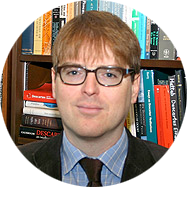
Zvi Biener
For Associate Professor of Philosophy Biener, big data offers big opportunities for philosophical study.
The scholar of the philosophy of science has spent much of his academic career studying and writing about the foundational and scientific work of Descartes and Newton. His more recent forays into the world of modern data science led him to develop and launch courses that guide students from a range of disciplines through practical data analytics projects as they address the deeper philosophical questions the burgeoning field raises.
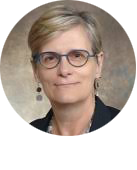
Karlynn BrintzenhofeSzoc
Associate Professor BrintzenhofeSzoc joined the faculty at the University of Cincinnati’s School of Social Work less than two years ago as a social worker and a precision cancer researcher. She began her career as a clinical social worker supporting patients with cancer and AIDS and their families. During this time she came up with more questions than answers which led her to become a psychosocial researcher. She has researched trends in care, behavioral outcomes of cancer and other chronic illnesses, and gathered important insights to improve both treatment options and patient success. She translates this into material to teach social workers and other providers how to provide quality psychosocial care to people diagnosed with a wide range of chronic illnesses and their families.
She left the Catholic University of America in Washington DC for what she calls her “dream job” at UC’s Precision Cancer Cluster, a group of faculty and researchers from a wide range of disciplines whose singular focus adds power their impact. BrintzenhofeSzoc sees it as being a part of a “new way of looking at cancer care, being a part of a team of health professionals across the spectrum of cancer care.” Her research area of interest is screening for distress, and she has developed a screening instrument that is used in cancer settings. Currently, she is also exploring the role of alcohol use during cancer treatment.
WHAT ARE YOU MOST LOOKING FORWARD TO IN THIS PROGRAM?
I am looking forward to working and learning with other healthcare providers and researchers who are committed to trans-disciplinary research. I see this as a fantastic opportunity to develop the knowledge and skills that will lead to a better understanding of trans-disciplinary research and how to facilitate its success.
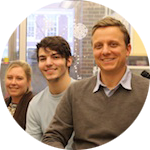
Joshua Gross
Studying the differences between bottom-dwelling and surface-dwelling blind cave fish may seem like a murky subject, but for Associate Professor of Biology Joshua Gross, their genetic variations offer insights into how species can adapt to and live successfully in new environments—and even how evolution happens.
The Harvard-educated PhD first wanted to learn how blind cavefish – creatures with no eyes and no pigment – sensed where food was and how to get it. With more than $2 million in funding in the next year from both the National Science Foundation and the National Institutes of Health, his lab continues to explore those and related questions.
WHAT ARE YOU MOST LOOKING FORWARD TO IN THIS PROGRAM?
What attracted me about the Trans-disciplinary fellowship program was the opportunity to cross traditional disciplinary boundaries. Specifically, I hope to evaluate some of the unusual cranial features evolving in cavefish from an engineering perspective. For instance, why does a bone that is a single, solid element in surface-dwelling fish evolve into multiple smaller “fragments” in cavefish? Do these fragments amplify sensory signals in the complete darkness of the cave? I also hope to collaborate with clinicians in the UC system that can help inform how underlying tissues may cause this bone to “break up” into multiple pieces. Additionally, we may be able to understand how this bone is dividing into smaller fragments as a means of developing interventions to combat bony fusions (that abnormally develop) sometimes in humans.
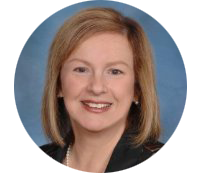
Rebecca C. Lee
Lee’s passion for the profession of nursing is matched only by her passion for leading dedicated interprofessional healthcare teams. An associate professor in UC’s College of Nursing, Lee has developed her own leadership skills while building bridges of coordinated care and interprofessional learning across colleges and disciplines for healthcare professionals who are working with vulnerable populations in our communities. As a public health nurse faculty scholar, Lee’s program of research has focused on health promotion among homeless and marginally house populations. She gathers valuable insight through collaboration with community residents and agencies, interprofessional colleagues, and students in their efforts to continually monitor, evaluate and improve delivery of quality interprofessional care.
WHAT ARE YOU MOST LOOKING FORWARD TO IN THIS PROGRAM?
I am looking forward to having the opportunity to learn with a diverse group of scholars and mentors from other disciplines in order to create new, innovative approaches for tackling the complex social, environmental, and economic issues impacting health outcomes.
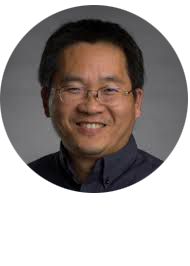
Maobing Tu
As an engineer looking for plant-based solutions to global energy challenges, Tu, an associate professor of Environmental Engineering and Science in CEAS, cares more about finding success than aligning disciplinary backgrounds. Tu’s research combines biochemical engineering and biomass processing chemistry to create an integrated refinery process for biofuel production.
In his lab, he uses both computations and experiments to understand how the molecules in compounds made of biomass converts into fuels, chemicals and materials.
WHAT ARE YOU MOST LOOKING FORWARD TO IN THIS PROGRAM?
I am looking forward to developing trans-disciplinary team research leadership skills and building strong collaborations across disciplines.
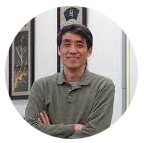
Xinhao Wang
In the College of Design, Architecture, Art & Planning, Professor Wang teaches a wide rage of courses that stretch across environment, planning and research and into Geographic Information Systems (GIS) and statistics.
An expert in water-quality research and land-use and watershed analysis, Wang also co-directs the UC Joint Center for Geographic Information Systems and Spatial Analysis.
WHAT ARE YOU MOST LOOKING FORWARD TO IN THIS PROGRAM?
I am most interested in working with scholars in other disciplines to address “wicked” problems in the effort to promote resilience and sustainability of the social-ecological system.